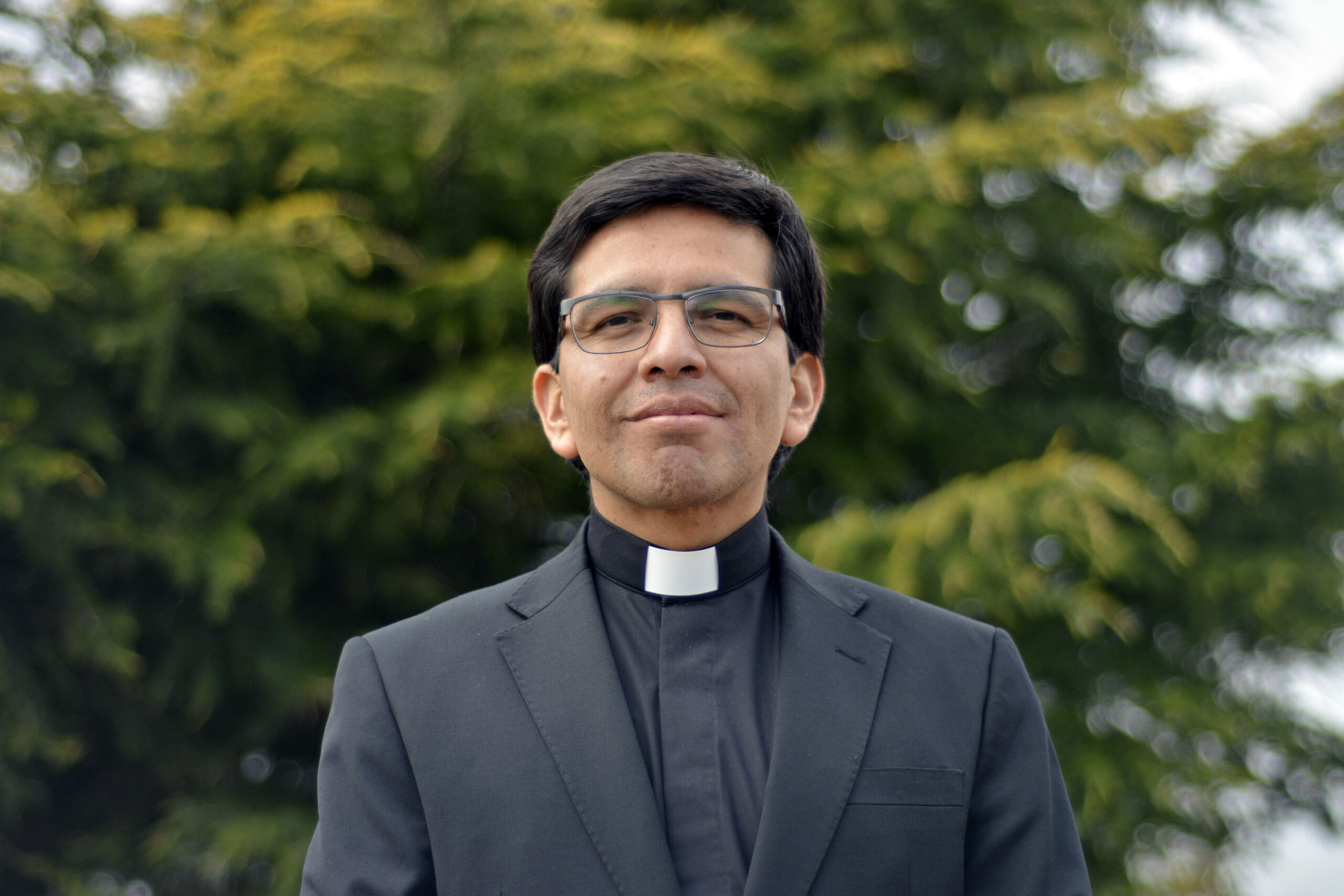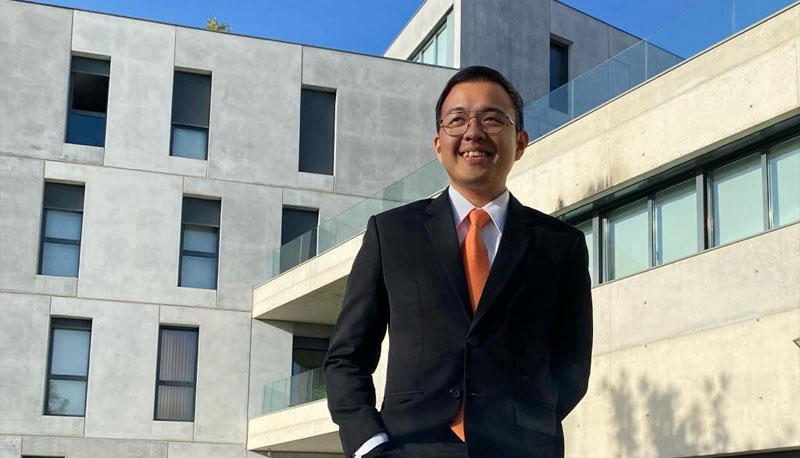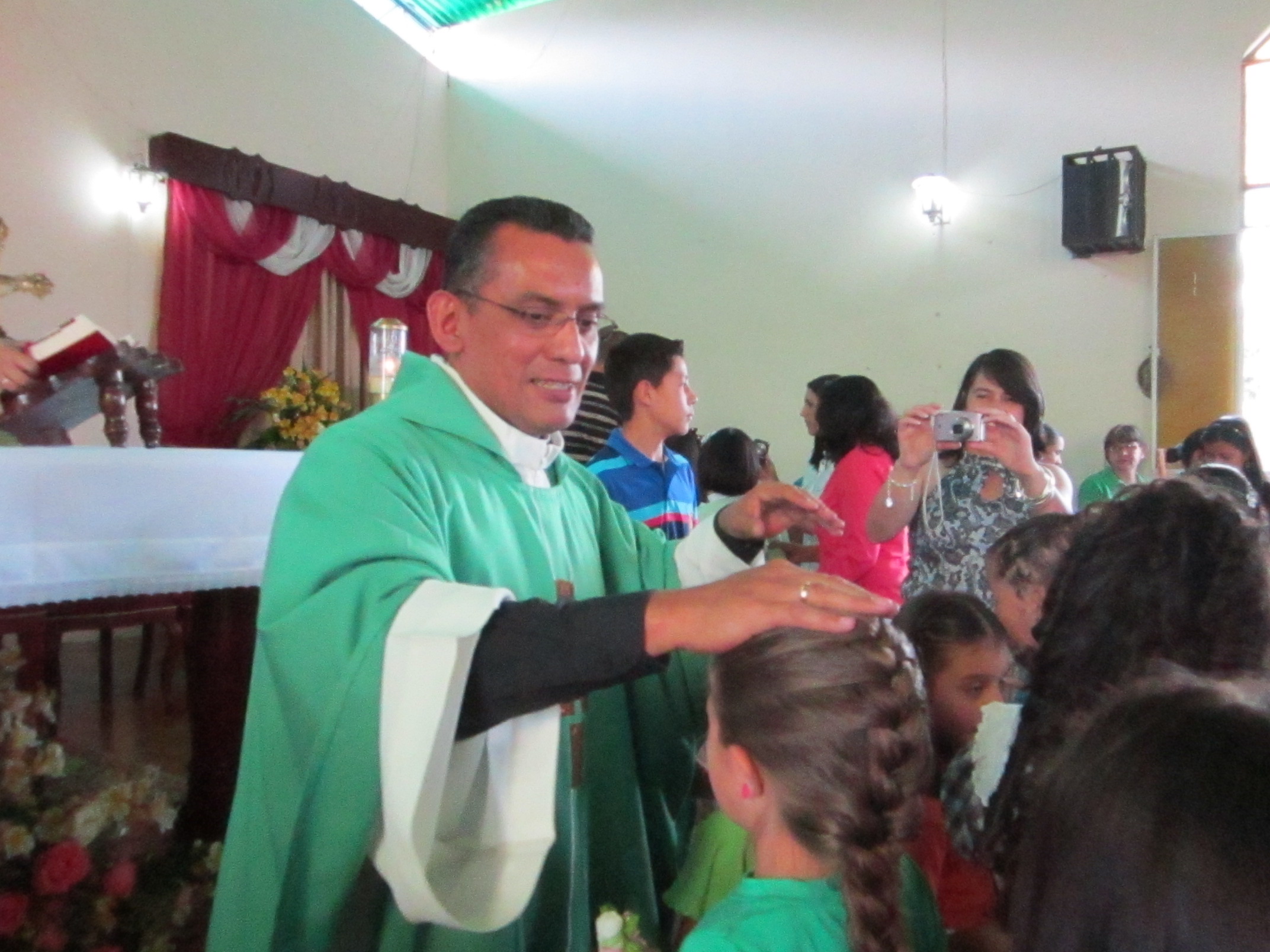
The P. Elio Azuaje Villegas is a Venezuelan priest from the diocese of Trujillo (Venezuela). He is 47 years old and is currently studying for a degree in Theology at the Pontifical University of the Holy Cross in Rome in order to be well trained and, upon his return, to serve the Venezuelan people who "continue to go hungry". He is one of the candidates of the CARF campaign ".Pon Cara a tu Donativo".
Fr. Elio is the third of five siblings. During his childhood, he attended the parish vicarage of his church, run by the Carmelite Sisters of the Sacred Heart of Jesus.
"There I prepared for communion and confirmation and at the age of 12 I was already helping as an assistant to teach catechism to other boys. It was there that my vocation was born and my desire, at the age of 13, to enter a minor seminary began," he explains.
However, at that time there was no minor seminary in the archdiocese of Caracas. Therefore, through the sisters he met the Carmelite Fathers with whom he began the vocational follow-up in a minor seminary of his congregation.
Fr. Elio recalls when the great day came that "I will remember all my life": his entrance into the minor seminary of the Carmelite Fathers. "It was a great joy and deep satisfaction for me to be there.. I was where I wanted to be. The novitiate with the Carmelites was an experience. There I discovered something very important: my vocation to work in rural areas".
With the Carmelite Fathers he also discovered the missions, since the Carmelites took them on vacations to mission places.
Once he left the minor seminary, he was to enter the major seminary. The bishop of Trujillo guided him in his decision. "I will always remember that first meeting with this venerable Bishop who has meant so much in my life. He trusted me, he was the Bishop who ordained me, and who guided me for many years. He already enjoys the presence of God since Palm Sunday 2018".
In this decision as a seminarian, he did not find it easy, mainly due to the lack of seminaries, since there was no major seminary in Trujillo and the 80 seminarians were sent to other seminaries.
Finally, he was ordained to the priesthood on August 15, 2000 by Bishop Vincent in the parish where he had done his pastoral year, in Burbusay.
After five years as a priest in his diocese, Bishop Vicente sent him to Spain to study Church History at the Pontifical University of Comillas, where he spent three years.
On his return to Venezuela he held several positions: parish administrator of a parish in Trujillo, pastor of the new parish of Boconó, foundation of the parish of San Antonio de Padua de Mosquey, chaplain of a school, etc.
Elio suffers for his people: "The levels of hunger and shortages are staggering. This whole situation has provoked a humanitarian emergency, where the people are dying little by little".
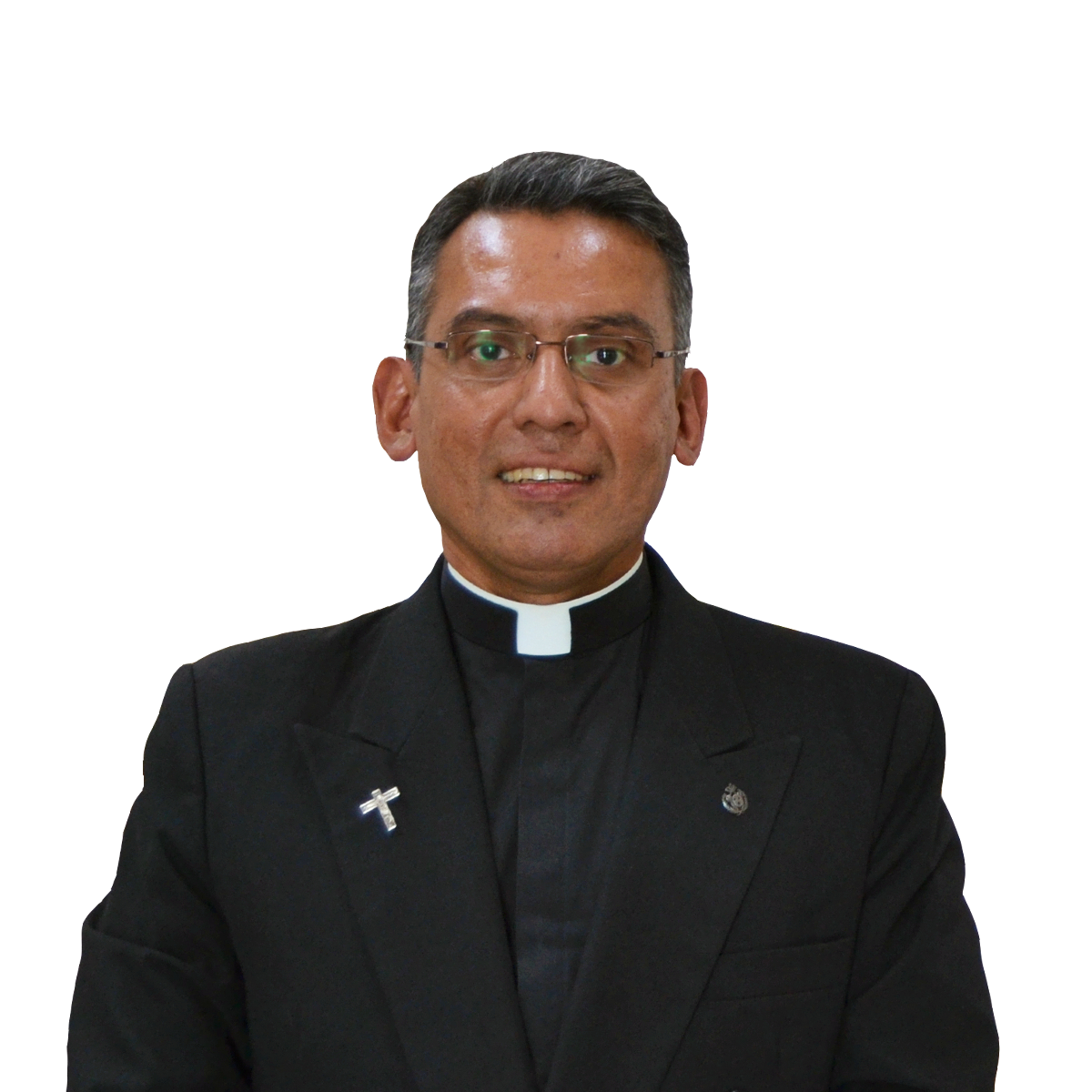
Fr. Elio Azuaje Villegas is a Venezuelan priest from the diocese of Trujillo (Venezuela). He is 47 years old and is currently studying for a licentiate in theology at the Pontifical University of the Holy Cross in Rome. He entered the minor seminary of the Carmelite Fathers at the age of 13. After five years as a priest in his diocese, Bishop Vicente sent him to Spain to study Church History at the Pontifical University of Comillas, where he spent three years.
On his return to Venezuela, he held various positions: parish administrator of a parish in Trujillo, pastor of the new parish of Boconó, foundation of the parish of San Antonio de Padua de Mosquey, chaplain of a school, etc. Now, his bishop has sent him to Rome to be well trained and to serve the Venezuelan people.
Elio suffers for his people. He describes the levels of hunger and shortages that his country is suffering in these four years.
"They are surprising. Added to this is the continuous devaluation of the currency, which not only makes it impossible to have nothing to buy, but also to get cash. This whole situation has provoked a humanitarian emergency, where the people are dying little by little and where the government does not want to recognize this situation officially because it would also be recognizing its failure".
The Church has always had and continues to have a clear and precise role. Since the beginning of the arrival of the regime to power by democratic means, the Church, through the Venezuelan Episcopal Conference, has warned, denounced and exhorted about the erroneous ideas of the Government, has had a prophetic voice that has brought as a consequence, on the one hand, the repudiation of the ruling party and its followers. On the other hand, it has become the only institution with credibility and moral foundation in the face of the disastrous situation of the country.
"At present, when the crisis has reached unimaginable levels, the Church, through the different pastoral agents, has tried to give answers to so many needs, in a concrete and concrete way. with parish canteens, health care, through caritasBut it has not been enough and the great insistence is to ask the world for humanitarian aid, which the government neither accepts nor authorizes," he explains.
Priests, consecrated persons and other pastoral agents, who are the driving force of the Church, are also affected by this humanitarian crisis. Priests and religious have already died for lack of medicines, in seminaries, convents, schools, religious communities, are also going hungry.
"Now more than ever the Venezuelan Church is being tested, For in hunger he must feed the hungry people, in sickness he must heal the wounded of the people, and in a situation of despair and chaos he must bear witness that he trusts fully in the all-providing God."
In this situation of despair, Fr. Elio was sent by his bishop to Rome precisely "to serve the hungry people". He describes his journey:
"I wanted to study Liturgy to deepen my knowledge of the art of celebrating the Mystery of Redemption among the people and for the people. The bishop thought it was good, and we began to make arrangements to be able to go to Rome to study because of the deep political deterioration of Venezuela. And, secondly, that I was already over 40 years old. But if a project is in God's plans, the obstacles do not cease to be only stages in achieving it.
"And so it happened that the Lord granted it to me. Through a fellow priest of my diocese who is studying in Rome, he learned that a parish priest in Rome was looking for a student priest as a collaborator of his parish. And so, I was able to travel to Rome to study through the Vicariate as a parish collaborator. It is wonderful to study in Rome and to feel the universality of the Church. My desire is to be well trained to return to my diocese and better serve the Venezuelan people.
"Now more than ever the Venezuelan Church is being tested., For in hunger he must feed the hungry people, in sickness he must heal the wounded of the people, and in a situation of despair and chaos he must bear witness that he trusts fully in the all-providing God."
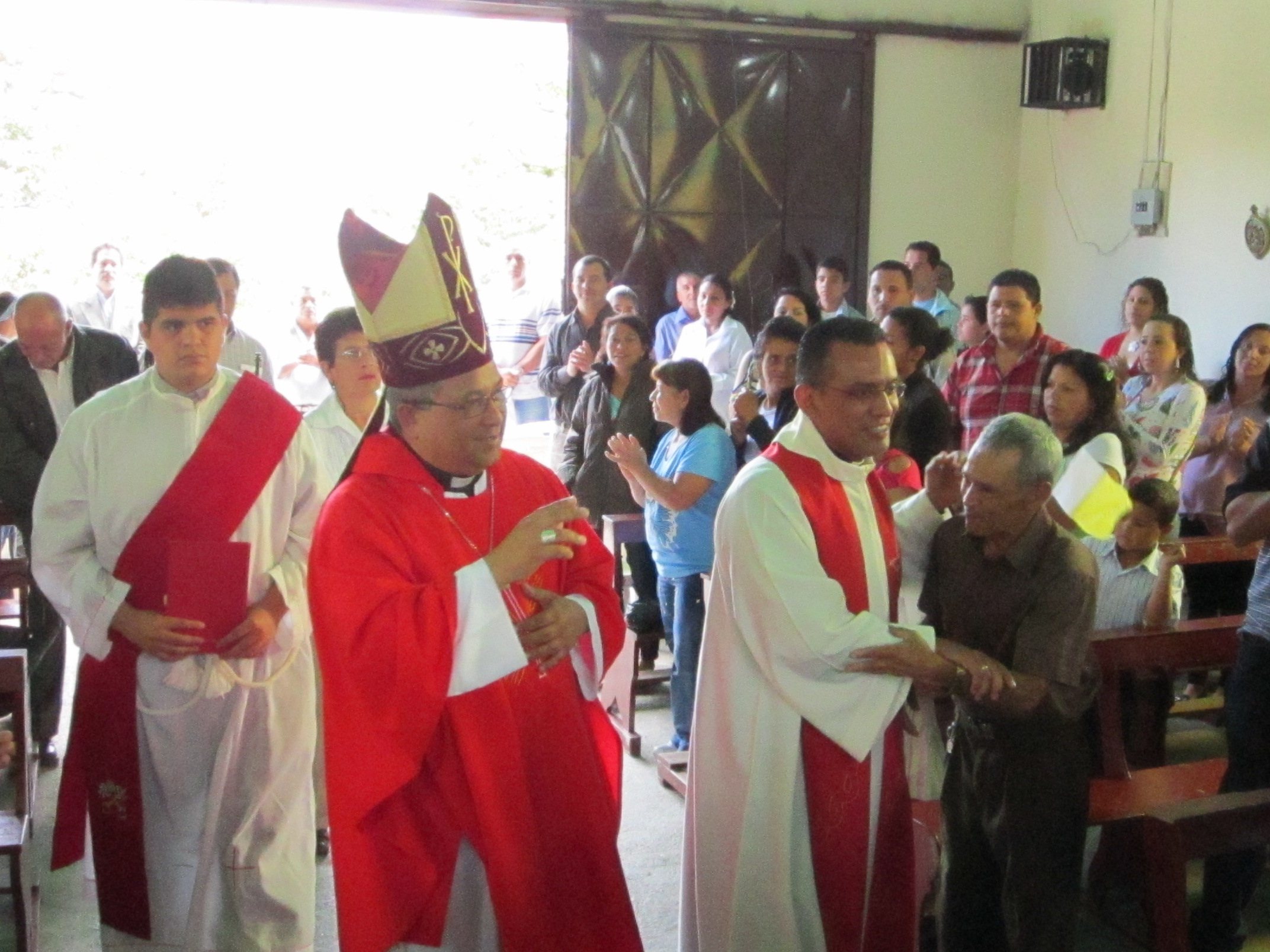
"At present, when the crisis has reached unimaginable levels, the Church, through the different pastoral agents, has tried to respond to so many needs, concretely with parish canteens, health care, through Caritas, but it has not been enough and the great insistence is to ask the world for humanitarian aid, which the government does not accept or authorize," explains Fr. In the picture, with his bishop in one of the parishes of his diocese.
He is aware that, when he returns to Venezuela, whatever mission the bishop entrusts him with, it will not be easy, as he will find a people in agony that he must console.
"The big question for many people outside the country is, 'How can I help?' the main help is the prayer of supplication so that God may have mercy on this people.and grant him fidelity in the test," he says.
In addition, he explains that materially it is a bit complicated "since there is no humanitarian channel, the aid in medicines and food must be done by other means. There are many people of good will who have created associations and collect medicines and money to pay for particular shipments that they send to different Caritas of the dioceses of Venezuela, others help by covering the food expenses of seminarians directly through the dioceses, and others help priests who are being trained outside the country to return better prepared to face this humanitarian crisis".
Gerardo Ferrara
BA in History and Political Science, specializing in the Middle East.
Responsible for the student body
University of the Holy Cross in Rome
